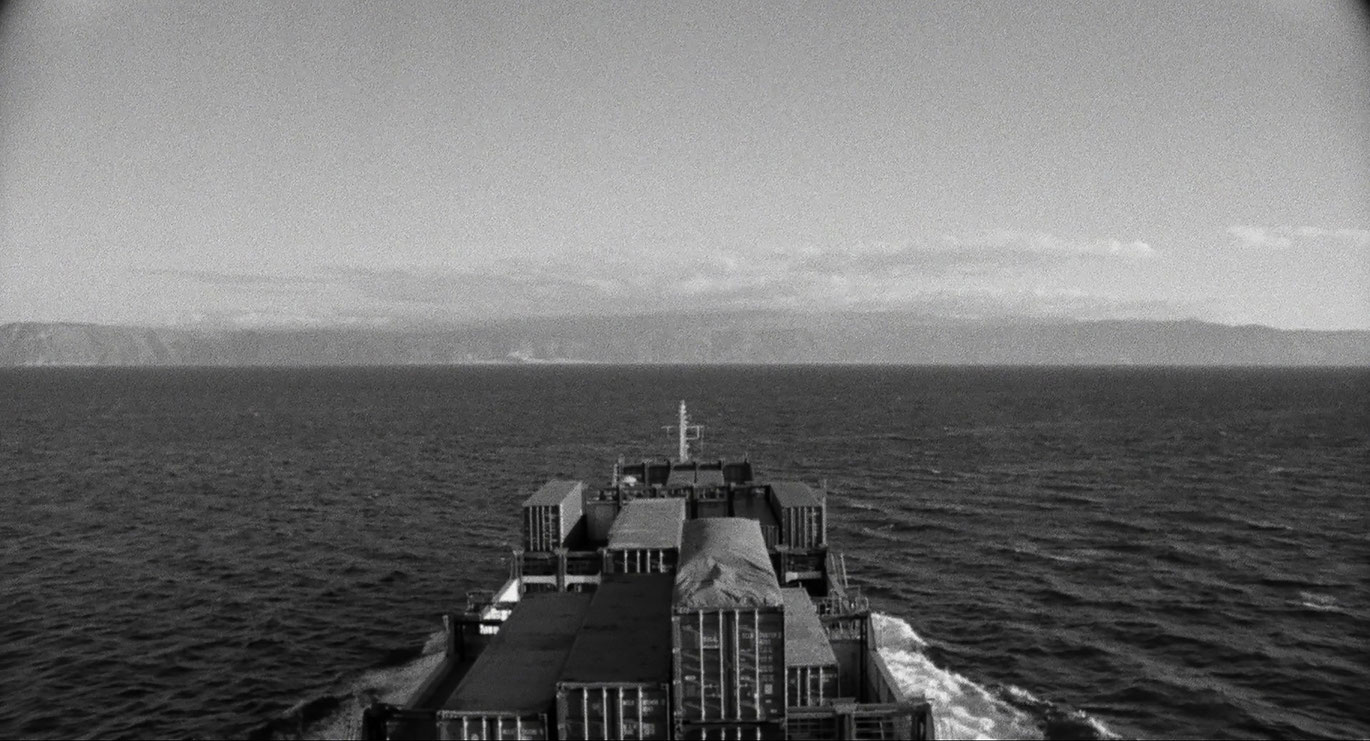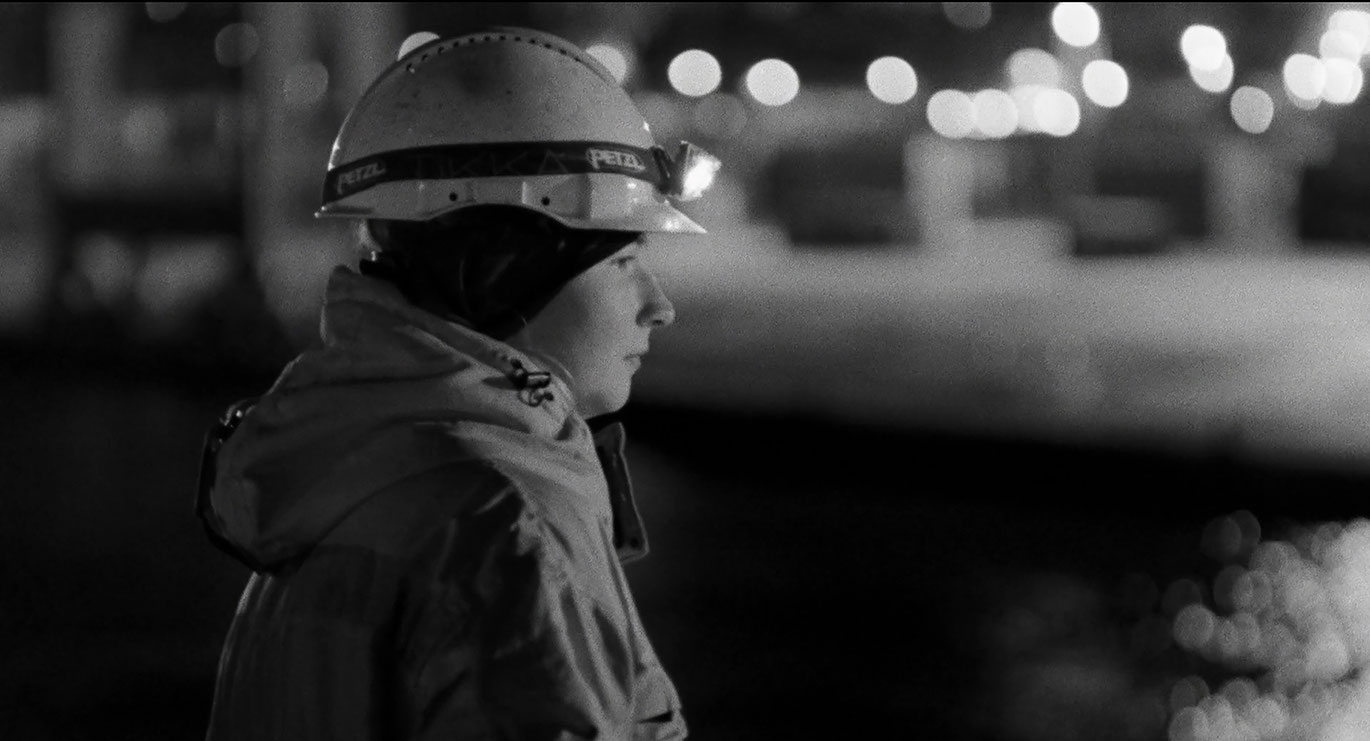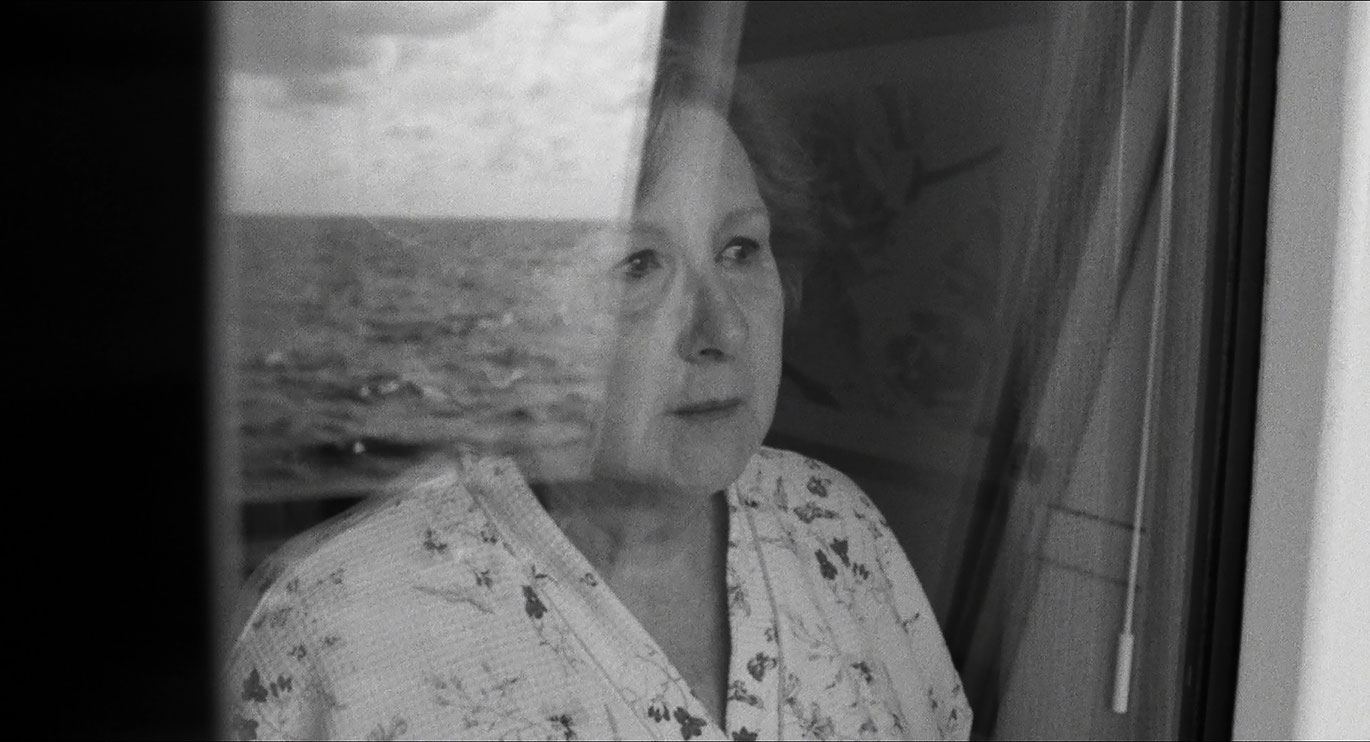Stories from the Sea
Stories from the Sea portrays women on different ships in the Mediterranean. Whether working, searching or relaxing, the sea is common to them all. (production note)
Men as captains, ships’ cooks, sailors, explorers, circumnavigators, and pirates. For centuries, the ocean has been perceived as a masculine space of expansion: men's worlds grew larger on ships. That’s precisely how genre cinema—from Moby Dick to Captain Blood—saw things.
In Jola Wieczorek’s documentary Stories from the Sea everything is different. Here, women set off on long journeys, gaze pensively at stormy seas, calculate routes, steer the rudder, gather the sails, set anchors and pull them up again. The film observes their movements on board. As the waves roll and the ship’s floor sways, Serafin Spitzer’s camera remains sovereign and calm in the background.
Each of the women has her own reason to travel the seas: Jessica is underway for months on the freighter “Joanna Borchard” as a trainee. She’s crossed the Mediterranean three times already. Amparo, a fun-loving retiree is a passenger on a cruise ship. In the past, she took these journeys with her husband. Now she’s traveling solo among the many couples. After cheerfully taking part in the events on board comes the melancholy as she takes off her make-up in the cabin.
Bianca, Federica, Anna, Armina, and Dorottya take part in a sailing trip for understanding among nations. The team is international. They cook and eat together, learn commands from a woman who is a professional skipper, discuss the refugee situation off Lampedusa.
Again and again, they all gaze at the ocean: daytime, nighttime, dark gray, marked by surf. Desires encounter everyday life. Today, singing karaoke with the Philippine sailors: tomorrow, television after work. Being on board. Doing one’s duty. Pitching in. Making decisions. Bracing against the wind. Women’s images in black-and-white. Almost like they had always existed. (Maya McKechneay)
Translation: Lisa Rosenblatt
Every ship is a “reservoir of imagination”. This quote by Michel Foucault floats by at one point in Jola Wieczorek’s Stories from the Sea. A ship is a little world in motion. The Joanna Borchard, for example, moves across the Mediterranean sea. Casablanca, Barcelona, Marseille, Haifa. One member of its crew is somehow special: Jessica is a rare female apprentice in a world that can be considered “probably the most chauvinist domain”.
That is another quote in Stories from the Sea, which comes from a woman on another ship. The Viva & Tanimar seems like a vessel for an utopian way of traveling on water. A community of people from all over the world shares a ship and an idea: the Mediterranean as a common space of humanity. Amparo from Valencia, a passenger on the cruise ship Costa Diadema, would probably subscribe to that idea too.
Wieczorek weaves together stories of women at sea, and explores as much a state of place as one of mind. Crossing Stromboli at one point, the sea and the volcano united in the diaphanous black and white imagery of Serafin Spitzer, the movie recalls those times of imagining a life within sublime nature, while Jessica’s chores and Amparo’s idle days on her cruise are also elevated by the surrounding elements. (Bert Rebhandl / VIENNALE 2021, Catalogue)
Stories from the Sea
2021
Austria
86 min
Documentary
German, Mandinka, Spanish, Tagalog, Italian
English, German, italian



